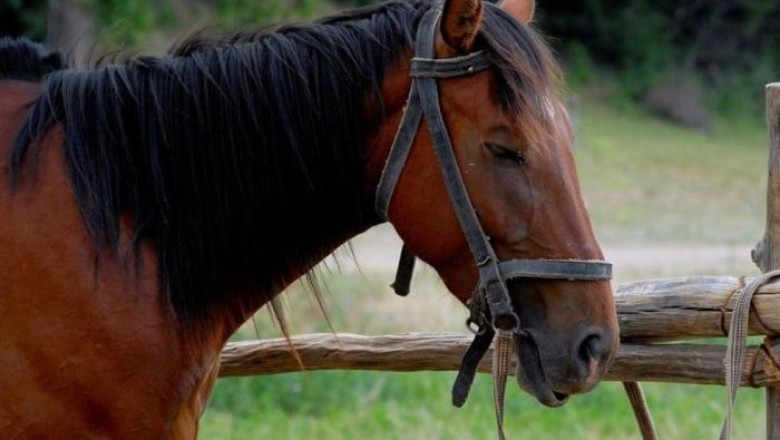
views
The Standing Sleepers: Why Don't Animals' Legs Get Tired?
Have you ever wondered how some animals can sleep while standing up without experiencing any fatigue in their legs? This intriguing phenomenon is observed in several species, and it raises questions about the resilience and adaptability of their limb muscles. This article explores the reasons behind animals' ability to sleep in an upright position and examines the unique anatomical features that support this behavior.
A Look at the Standing Sleepers
Among the animals known to prefer standing sleep are horses, elephants, and giraffes. Horses, in particular, are capable of maintaining an upright position for extended periods, with some individuals even sleeping continuously while standing. Baby elephants also exhibit this behavior, while giraffes occasionally indulge in upright naps. But what allows these animals to remain on their feet without experiencing fatigue or discomfort?
The Horse's Ingenious Leg Structure
To understand why animals' legs don't tire during standing sleep, let's explore the remarkable leg structure of horses. The horse's leg is equipped with a unique system of bones and ligaments that interconnect to create a stable support structure. When a horse is in a motionless standing position, the legs can bear the animal's weight without any muscle tension. In a sense, the knee joint functions as a mechanism that securely fixates the joints, maintaining a stationary position.

Veterinarians have studied horses extensively and have found that they can stand continuously for over a month without any adverse effects. However, horses face challenges when lying down for extended periods due to their heavy weight and relatively fragile bones. This can lead to muscle spasms, signifying the horse's need for occasional rest on their feet.
Evolutionary Advantages and Ancient Factors
The reason behind animals' ability to sleep while standing up can be traced back to their wild ancestors. In the case of horses, it is believed that they had to sleep in an upright position due to the constant threat of unexpected predator attacks. This necessity kept them in a state of constant alertness, prepared to flee at a moment's notice.
Conclusion
The ability of animals to sleep standing up without experiencing fatigue in their legs is a remarkable adaptation of nature. The unique anatomical structures, such as the interlocking bones and ligaments in horses' legs, allow them to support their weight effortlessly during sleep. While this behavior is not as prevalent in other species like elephants and giraffes, their bodies have also developed strategies to reduce the load on their legs during rest.
Studying these remarkable mechanisms not only deepens our understanding of animal physiology but also sheds light on the fascinating world of evolutionary adaptation. By uncovering these secrets of the animal kingdom, we gain valuable insights into the diverse strategies employed by nature to ensure the survival and well-being of its inhabitants.




















Comments
0 comment